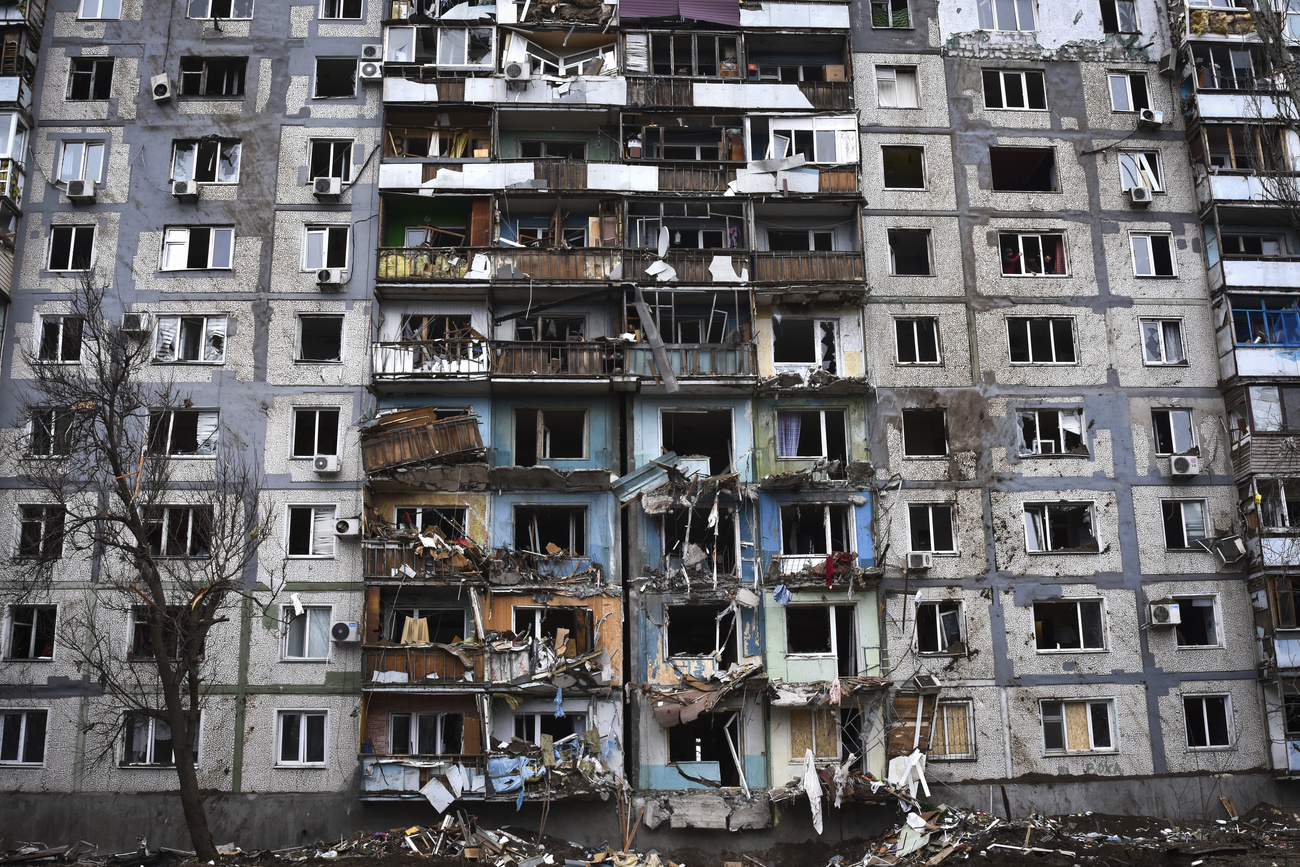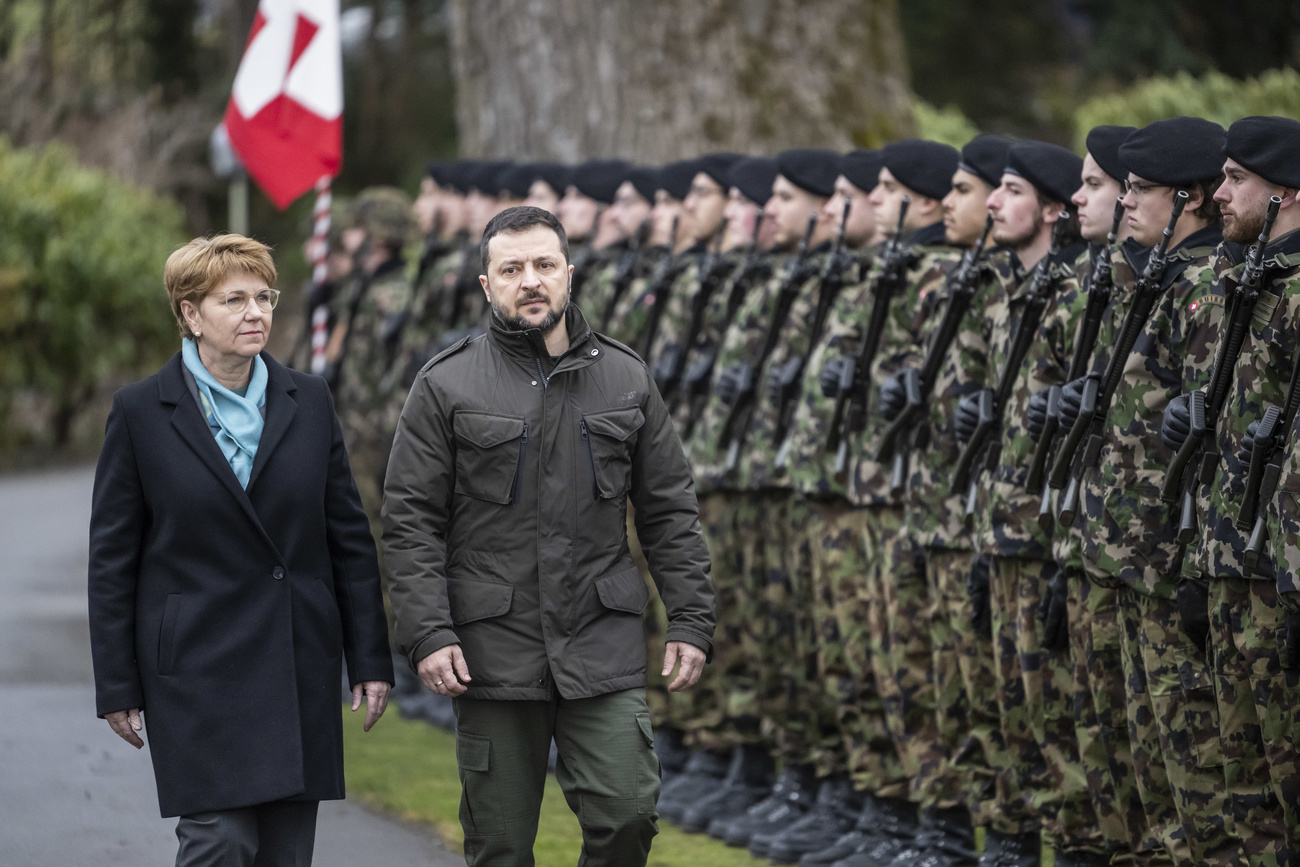Swiss foreign minister: Ukraine peace event still in ‘exploratory’ phase

Ignazio Cassis says details of the proposed Ukraine peace conference – mooted for this summer – in Switzerland are still unclear.
Speaking to press during a visit to Kenya on Thursday, Cassis said that no matter how many diplomatic trips he makes, drumming up support for the summit is not easy. Nor is it easy to reconcile the positions of Ukraine and Russia, he said. As such, the Swiss government is giving itself time to reflect on the summit.
“Between now and mid-April, we will decide what we are going to do,” Cassis then told Swiss public radio, RTS, on Friday morning. “Do we go ahead with the summit? Do we postpone it? Do we hold two of them, so that both lines of reasoning can move forward at the same time? We are currently in this intermediate or exploratory phase,” he said.

More
How two years of war in Ukraine have marked Switzerland
“We’ve travelled like crazy since mid-January, to talk, to listen, to understand, to see who is prepared to move and how,” the minister continued. “And everyone is obviously looking at each other, sizing each other up. What’s important for us is that everyone recognises the legitimacy of Switzerland’s approach and is happy that Switzerland is doing it. But they can’t say what the right path is, and that’s the difficulty of the task,” he said.
Getting BRICS on board
The trip this week to East Africa was an opportunity for the foreign minister to rally support for the summit on a continent where the conflict in Ukraine has been divisive since the start.
“I talked about it in Ethiopia. Why Ethiopia in particular? Because Ethiopia has joined the BRICS,” Cassis told RTS.
The BRICS is a group of 10 countries – including Brazil, Russia, India, China and South Africa – which meet at annual summits.
However, the conference on the war in Ukraine raises the question of how much support can be found among states from the Global South, given that Russia will not attend the Swiss event. “There is a will to contribute everywhere. But there are also wishes on the part of certain states that are not always compatible, for example, with those of the West, the Americans or the European Union,” Cassis said.
While certain major powers remain difficult to convince, the United States has meanwhile confirmed that it wants to play a role in the proposed conference.
Adapted from French by DeepL/kc,dos
This news story has been written and carefully fact-checked by an external editorial team. At SWI swissinfo.ch we select the most relevant news for an international audience and use automatic translation tools such as DeepL to translate it into English. Providing you with automatically translated news gives us the time to write more in-depth articles.
If you want to know more about how we work, have a look here, and if you have feedback on this news story please write to english@swissinfo.ch.

In compliance with the JTI standards
More: SWI swissinfo.ch certified by the Journalism Trust Initiative
You can find an overview of ongoing debates with our journalists here. Please join us!
If you want to start a conversation about a topic raised in this article or want to report factual errors, email us at english@swissinfo.ch.